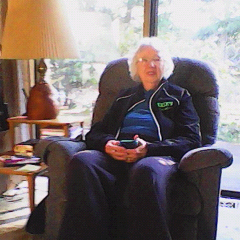
Word of the Week – Recruit

Ever wonder why we don’t cruit, but we cruit again (recruit)? Maybe you don’t, LOL. But as I was driving along the road a few weeks ago and saw text on the back of a tractor trailer that was wearing off, it got me to wondering. What’s the root of this word, where we use the “re-” prefix but not the word itself? Is that “re-” the one I expect or something different?
Turns out, it is indeed the usual “re-” meaning “again.” So where does –cruit come from?
The roots are Latin, from crescere, meaning “to grow.” So it’s literally “to regrow” or “to grow again.” Old French began to use a form of this to represent new growth, which is where our current meaning comes from. By the 1630s-1640s, it had worked its way into English as both a noun and a verb to mean “new supplies or military reinforcement.” It did get its start strictly in military things–soldiers or supplies for said soldiers–but it didn’t take long for it to expand to any new supplies (by 1660).
Although the idea of recruiting student athletes is pretty new, dating only from 1913.































 Roseanna M. White is a bestselling, Christy Award winning author who has long claimed that words are the air she breathes. When not writing fiction, she’s homeschooling her two kids, editing, designing book covers, and pretending her house will clean itself. Roseanna is the author of a slew of historical novels that span several continents and thousands of years. Spies and war and mayhem always seem to find their way into her books…to offset her real life, which is blessedly ordinary.
Roseanna M. White is a bestselling, Christy Award winning author who has long claimed that words are the air she breathes. When not writing fiction, she’s homeschooling her two kids, editing, designing book covers, and pretending her house will clean itself. Roseanna is the author of a slew of historical novels that span several continents and thousands of years. Spies and war and mayhem always seem to find their way into her books…to offset her real life, which is blessedly ordinary.